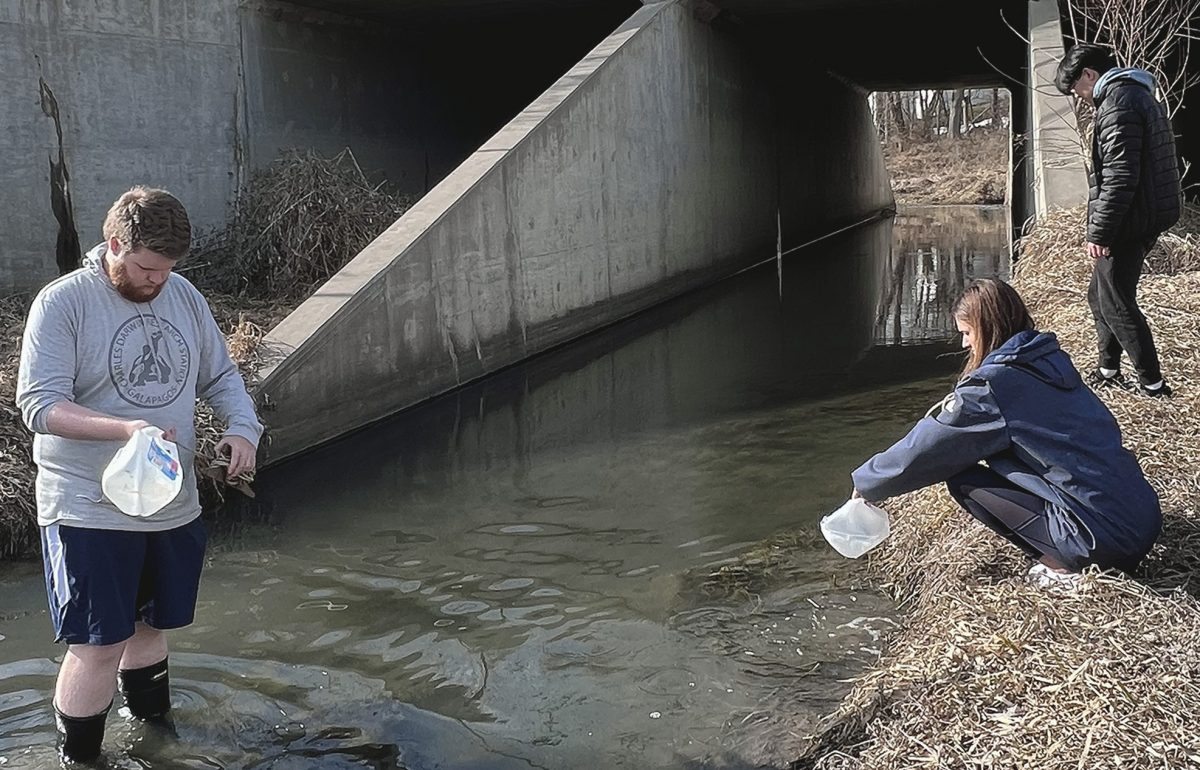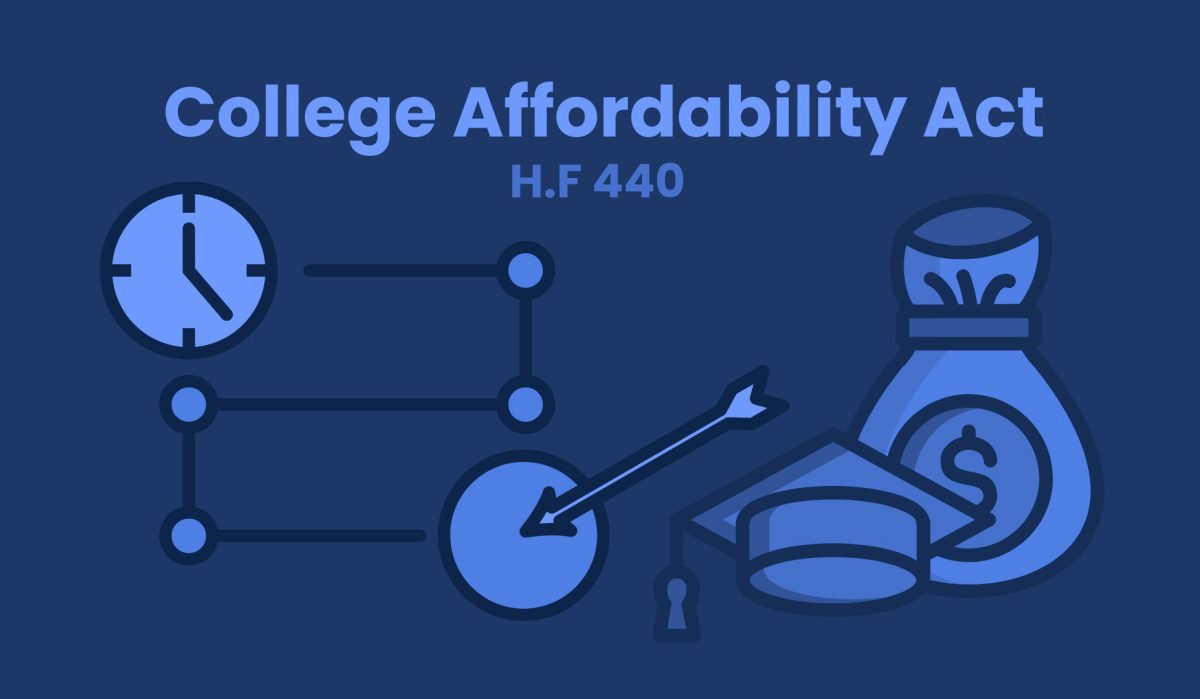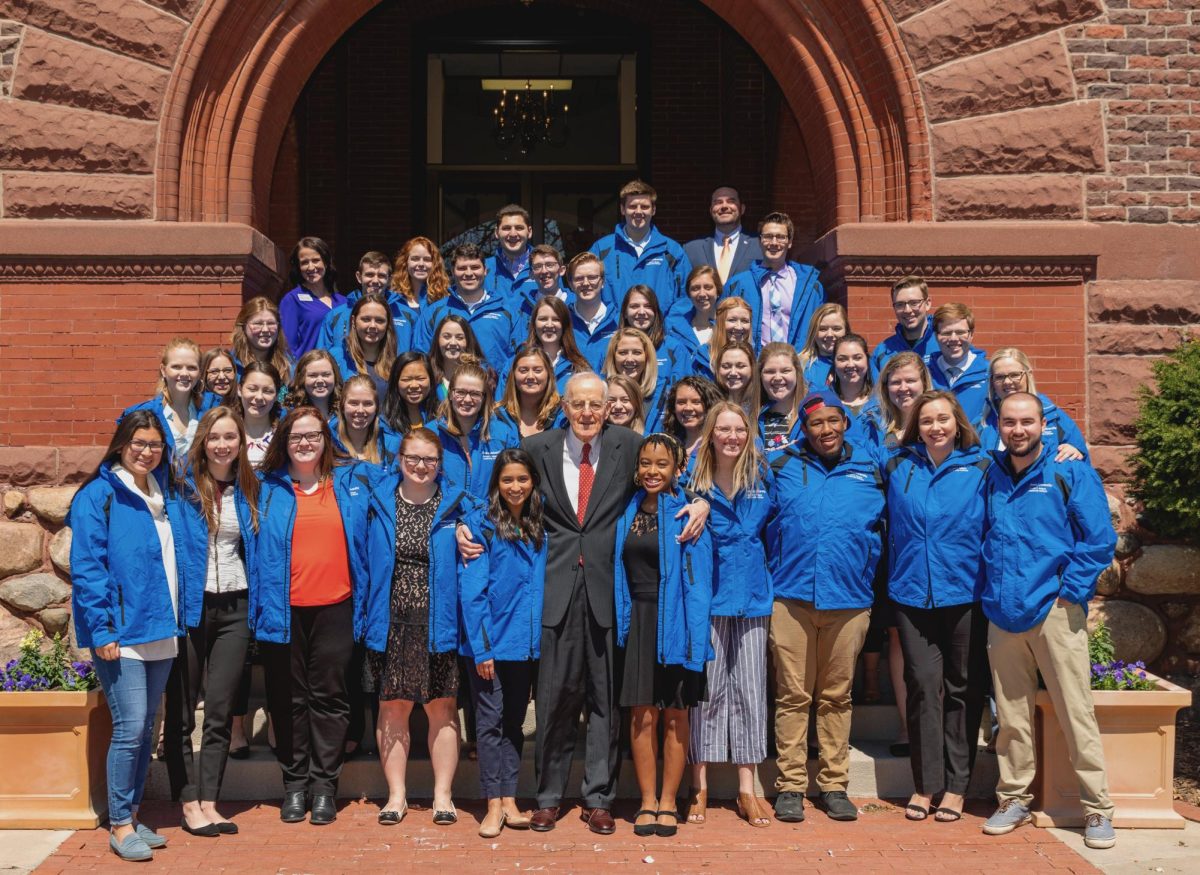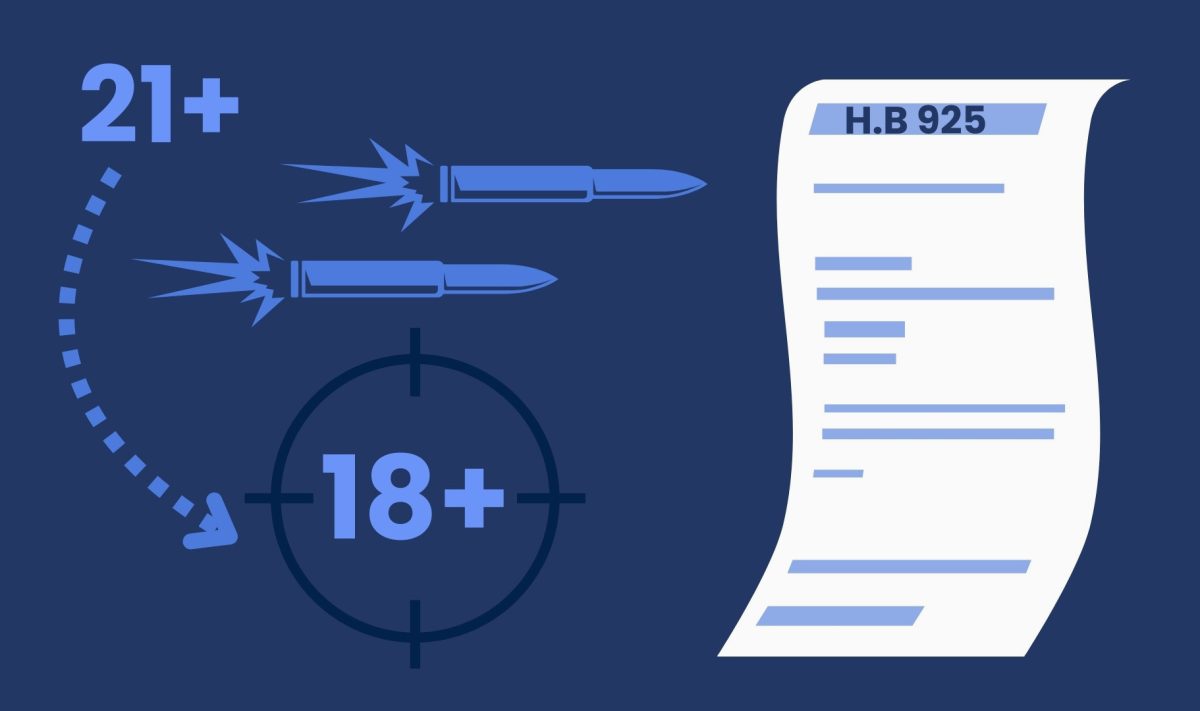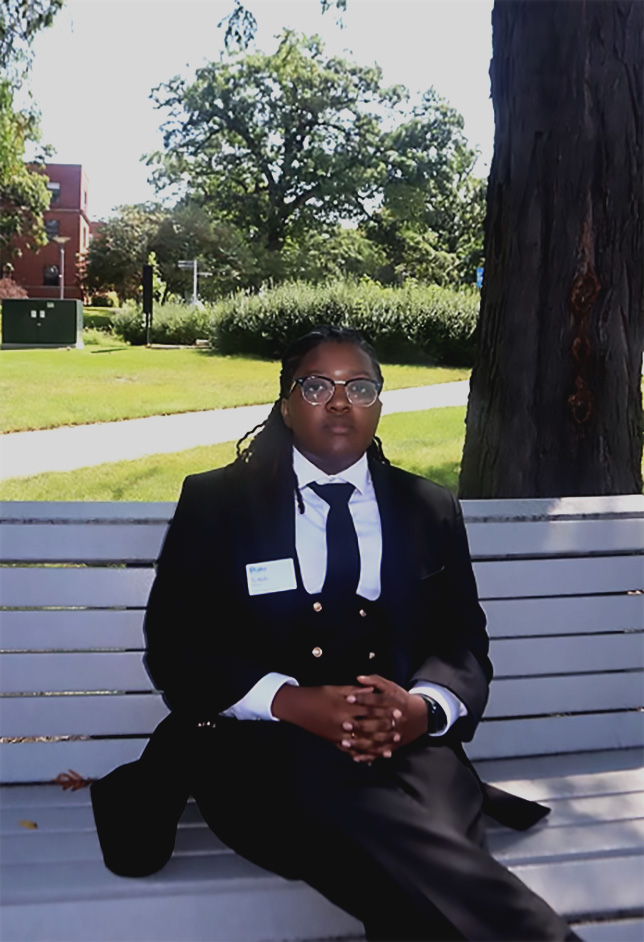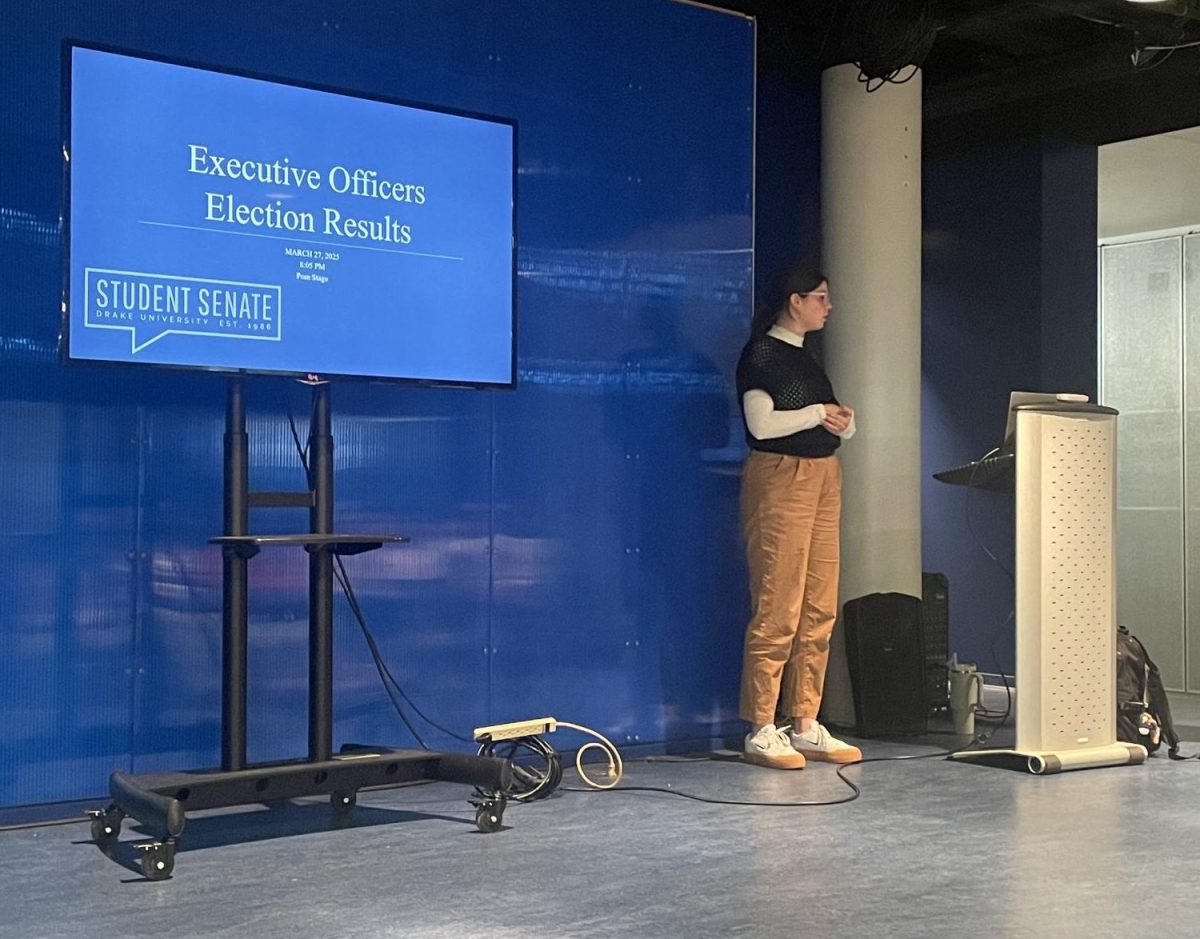STORY BY LAUREN VELASCO
Students, faculty and several members of the community gathered in Sussman Theater last Tuesday for a panel discussion with NPR’s Michel Martin, the host of NPR’s “All Things Considered.”
Drake hosted her live series Michel Martin: Going There, which focused on the myths and facts of youth voting.
Martin, along with sophomore Brandi Dye, senior Raymond Starks, Drake alum Hector Salamanca and advocate for public policy and citizen engagement Rachel Paine Caufield, discussed several topics involving millennials and politics.
“As the next presidential election approaches, we want to know where younger people fit into the bigger political picture, what issues are important to them, how can they be sure that their concerns are addressed in debates and actual policy decisions,” Martin said.
The panel discussed the various reasons why the youth vote is important. Being 19, Dye has already participated in elections before, but she is excited to participate in the presidential election and vote on a larger scale.
“I think voting is so important so I was really excited that I could be a part of it finally,” Dye said. “I carry my voter registration card on my at all times because I’m pretty proud of it.”
Salamanca is a Dreamer, and unlike Dye, he cannot vote. However, he is heavily involved in the political system as the Grassroots Engagement Coordinator for the Presidential Campaign Project. He said that in past elections, his friends who were eligible to vote did not.
“I tried to convince several of them to realize that our voice does matter,” Salamanca said. “Even though we are students, even though we may be young, there are certain issues that speak for younger generations.”
Starks, who is a senior at Drake studying politics and quantitative economics, discussed the start of his interest in the political system.
“(My grandparents) conveyed to me a sense that there is a duty that you have to participate in this process,” Starks said. “Living in this country, it is something that is very important. And, if you want something to change, you should get involved in it.”
Dye argued that she does not see voting as a duty, but as a choice that reflects your opinions as an individual.
“I wouldn’t use the word we have a ‘duty’ to vote, I think we should vote,” Dye said. “The reason I think it’s so important to vote is (that) you can’t complain if you didn’t do anything to change it.”
The panel investigated why the turnout for youth voters is often low. Caufield believes it is due to a feeling of not being heard.
“Young voters are in this perpetual catch-22, “ Caufield said. “Politicians pay attention to the people who show up. If young voters don’t feel as though anybody is listening to them, they don’t show up, and when they don’t show up, nobody is listening to them.”
A fairly new medium for politics is allowing the youth to participate more though social media. Dye explained that it gives young people power to communicate in politics.
“Social media allows us, especially as young people and as citizens, to have an opinion. It’s a little bit of a way that our generation has that power,” Dye said.
The panel discussed the future of politics with this new medium and the changes they see happening in the next year before the 2016 election, especially from the mindset of younger voters.
“I don’t think they necessarily see themselves as younger voters,” Starks said. “I think they more see themselves as here’s where I am now; here’s where I want to be in 10 years, and how am I going to get there?”

